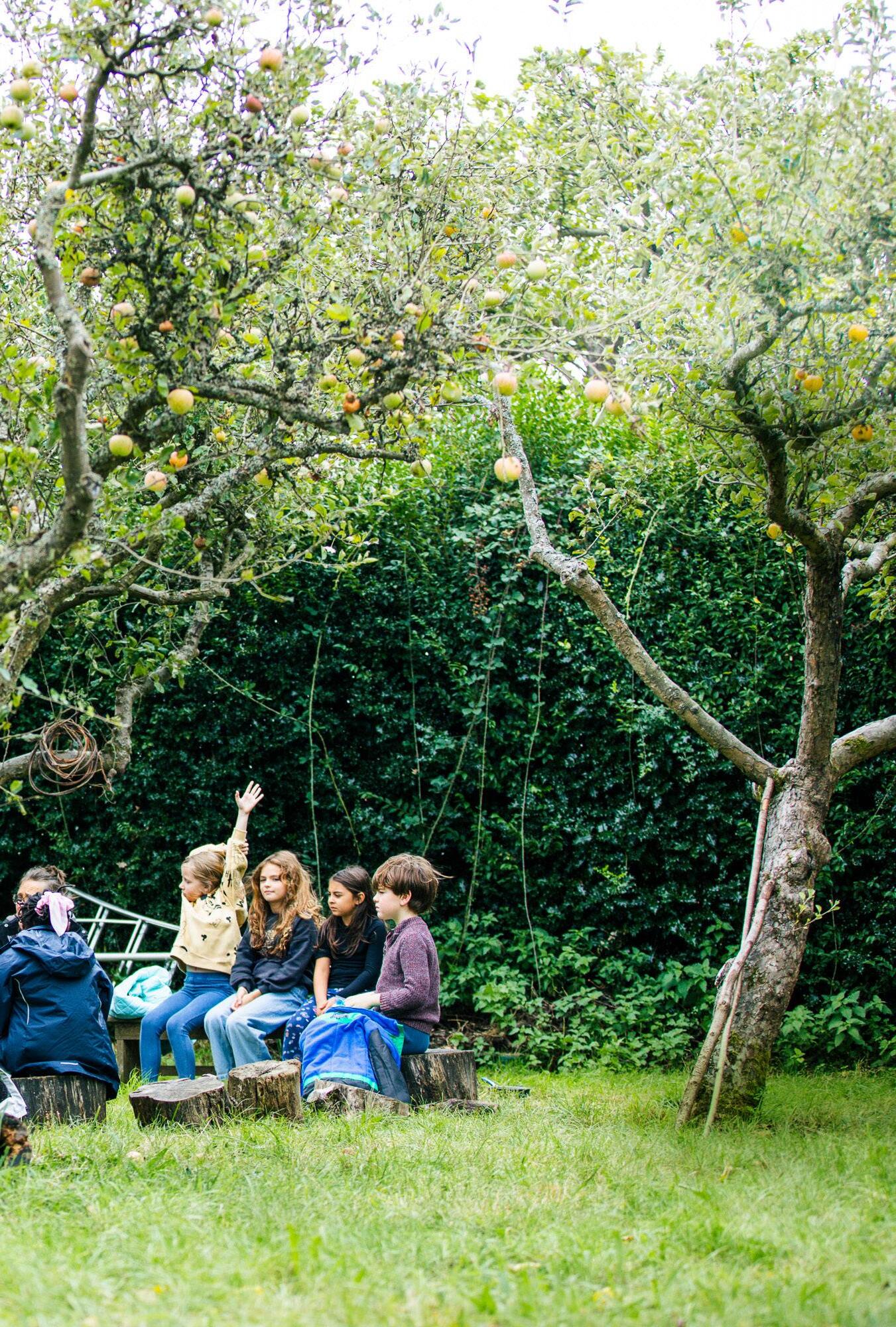




The Junior School follows a one-week timetable with a topic-based curriculum. Subject specific learning is, in the main, approached through the lens of the topic.
In this booklet you will find a summary of the main subjects covered in G Group (Year 3) and the amount of time dedicated to them each week. The class teacher is the main lead for the subject except for those subjects which are led by specialist teachers, detailed below.
Our topics constantly evolve and change as we respond to the interests of the children. However, examples of topics in recent years include;
Autumn term: Exploring Europe
Throughout the Exploring Europe topic, students learn about the varying cultures of some of Europe’s countries. Students learn to use an atlas to locate Europe and its countries and capital cities and find out about some of the key aspects of human and physical features. Students can focus on a European country of choice for further study.
Spring term: The Celts
Children will explore the fascinating world of the Celts, who lived in Britain over 2,000 years ago. They will learn how the Celts built roundhouses, made their own clothes, and protected their
communities with hillforts. This topic is taught through a cross-curricular approach, with opportunities to write Celtic myths in English, create traditional patterns in Art, and investigate life in Iron Age Britain through History. To enrich their learning, a visit to a local heritage site will bring the topic to life through hands-on experiences.
Summer Term: The Living Rainforest
An exciting topic, students find out where in the world rainforests are located and learn about their climates. Students learn about the indigenous tribes of the Brazilian rainforest and explore the different layers of a rainforest and the flora and fauna found living there. Throughout the topic, students discover how humans may seek to manage environmental sustainability and identify opportunities for our own involvement.
Subjects over each week
This graphic represents a typical week in the Year 3 curriculum. However, we adapt and change daily depending on the needs to our students so these timings can occasionally be flexible.

Annette Keech
4 hours 30 minutes
overNumberofhours 1week
The curriculum is varied and covers a wide breadth of writing genres with students engaging in a range of non-fictional and fictional texts. Emphasis is placed on learning and consolidating spelling patterns, punctuation, and grammar. Guided reading sessions allow for further development of comprehension skills and vocabulary. English work often links to our topics for extended writing opportunities.

Annette Keech
4 hours 30 minutes
Using the Power Maths scheme, we cover a range of mathematical concepts. Students work on consolidating their numeracy skills from Year 2 and further develop their skills in arithmetic, fractions, length, capacity, money, time, statistics, angles, and properties of shapes. A focus on problemsolving encourages students to think critically and apply their skills. In every session there is opportunity to support students further or extend their learning.

Annette Keech
1 hour 30 minutes
G Group students take part in science lessons which aim to develop practical skills, scientific knowledge and understanding to provide a suitable foundation for further learning. Through hands-on experiments and observations, students develop a deeper understanding of the natural world. The following topics are covered over the course of the year: rocks and soils; light, forces, and magnets; animals including humans; and plants.


Annette Keech 1 hour 30 minutes
In computing, students develop their digital literacy with skills reinforced by a focus on the basics of touch typing and general word processing. Students learn how to insert graphics into their work and how to manipulate these on a document. The curriculum also covers concepts such as coding, algorithms, and problem-solving. Through hands-on activities, students engage with various software applications, fostering a practical understanding of computer science.
Annette Keech & Claire Plain 1 hour 30 minutes
In humanities, the teaching approach combines history and geography within our overall topics. Students explore different aspects of history through a range of viewpoints and historical sources. By comparing past and present, we gain a sense of the wider world around us and the impact of key historical changes. Geography emphasizes map skills, cultural diversity, and human and physical aspects.
Annette Keech & Claire Plain 1 hour 30 minutes
Both art and design technology are combined within our overall topics. A wide selection of skills are introduced and consolidated throughout the year to encourage creative exploration. From drawing and painting to pottery and mixed media, students develop their artistic skills whilst learning about various artistic forms and expressions.
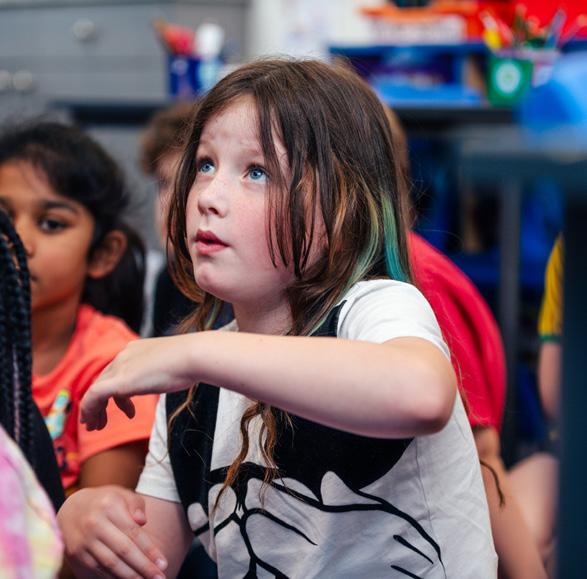

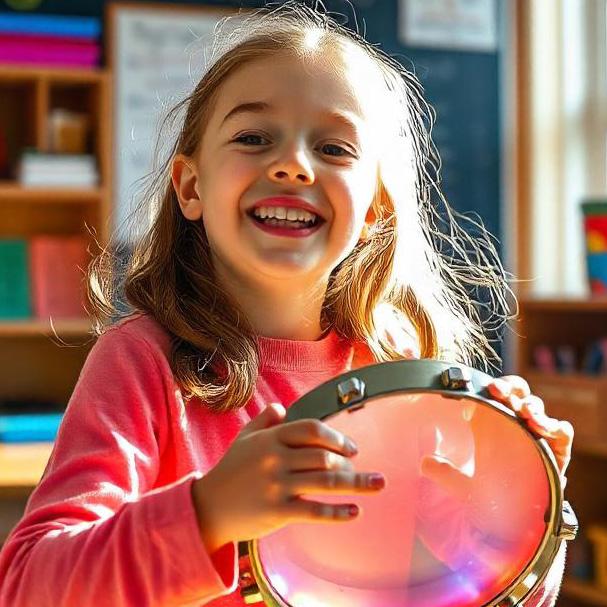
Annette Keech
1 hour
In PSHE (Personal, Social, and Health Education) we address personal wellbeing, interpersonal relationships, and the importance of physical and mental health. This compliments the RSHE curriculum (Relationships, Sex, and Health Education) which includes age-appropriate discussions on friendships, being healthy, similarities and differences and coping with change. Through open conversations and activities, students develop the skills to make informed decisions, build healthy relationships, and understand the importance of self-care.
Edel Davies
30 minutes
Through games, songs, mime, dance, and play, students learn key French vocabulary, linguistic structures, and grammar. Students begin to take some autonomy over classroom routines to consistently revisit and build upon previously learned language. Through a variety of engaging situational topics, students revise and meet new grammatical concepts such as definite and partitive articles to express noun, gender, quantity, possessive adjectives, regular present tense verb formations, conjunctions, and negation. Focus remains on understanding aural input and oral output, however, students will also be encouraged to notice features of written French when reading individual words or short sentences.
Martin Goodchild
30 minutes
In G Group, music lessons comprise short, fun, activities designed to practice and develop basic musical awareness. Some of the main areas of focus include activities to develop the sense of pitch, rhythm, and pulse. Students also take part in games to improve musical coordination, focused listening, and effective musical communication.

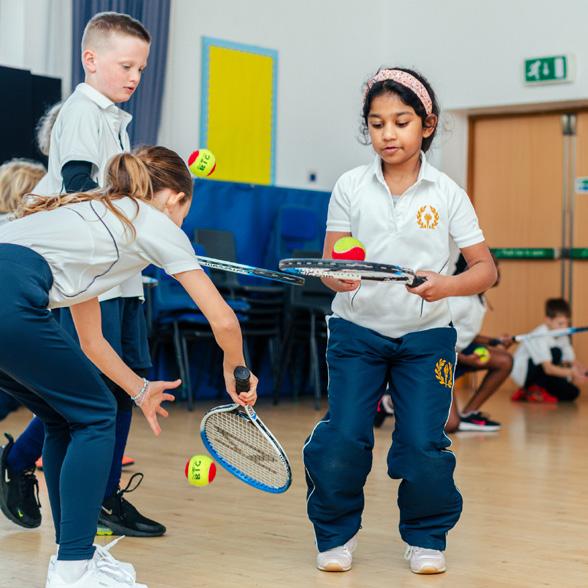
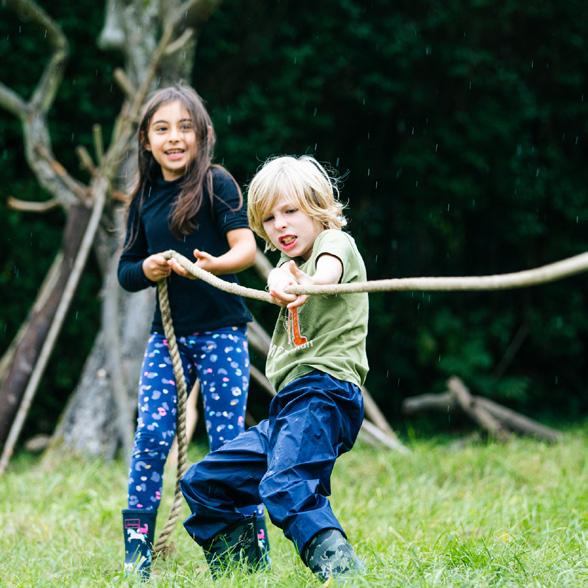
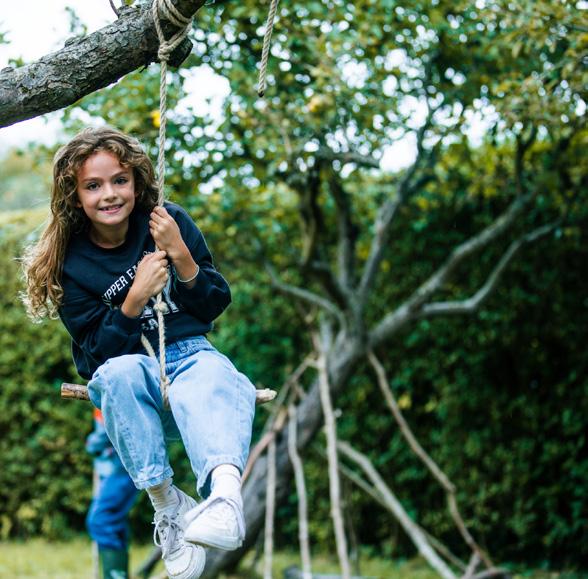
Helen Lord (Violin Teacher)
30 minutes
In G Group, students learn to play the violin as a class. Through playing the violin, students learn to coordinate and multi-tasking through technical skills such as plucking (Pizzicato) and bowing (Arco). Playing, sharing and performing together is a key element of these sessions as well as also developing physical and mental skills such as stamina and perseverance.
Students learn about musical concepts and use dynamics (loud and soft), pulse (fast and slow), and articulation (smooth or detached) to communicate music. They learn to recognise pitch (low or high) and tune their notes. Memorisation and rhythm skills are developed through call and response games. The students build confidence by working in groups, leading with solos, and performing to each other - honing their listening skills. They also learn to express their own ideas through creative improvisation.
Mark Day 30 minutes
Students participate in the following activities to aid fundamental skill development: fitness, outdoor and adventurous activities, creative dance, gymnastics, tennis, and athletics. These skills, alongside those taught during their games lessons, are supported with after-school practices and the opportunity to play competitive fixtures.
Lyn McGregor 1 hour
Students follow a programme of football and netball (Autumn Term), rugby and hockey (Spring Term), and cricket and rounders (Summer Term). Students focus on developing game play with some fluency and accuracy, using a range of throwing and catching techniques. They practice finding ways of attacking successfully when using other skills; use a variety of simple tactics for attacking well, keeping possession of the ball as a team, and getting into positions to score.
Jenny White
Head of Department
45 minutes + changing time
G Group students undertake weekly swimming lessons where they work on improving their stamina in order to be able to swim 50m (front or back) with ease. We also focus on improving arm and leg kicks in all four strokes to secure a basic technique across two lengths (50m). We aim for students to be happy to swim fully submerged and to tread water and scull. Students will learn Artistic Swimming and Water Polo skills and will join in with games when they have the stamina and are skill ready. Lessons take place using the full length of the pool and include development of competitive starts and turns and the opportunity to take part in galas to build confidence and experience.
Lydia Somerville 1 hour 30 minutes
In weekly Forest School sessions, students enjoy manipulating materials found outside, such as willow and hazel sticks, clay, ice and apples, to make things. The students learn tension knots and lashings. Forest School lessons draw their attention to more detailed comparisons and connections in nature; students investigate how plants make their own food, look closely at soil types, learn the names of some wildflowers, invertebrates, and birds, and discuss Nature’s cycles. Students are also supported to link cause and effect when we play to help them in managing risks.
Forest School at St Chris is a child-centred, inspirational process that gives our young learners opportunities to challenge themselves, develop confidence and increase their self-esteem through hands on learning experiences in a natural environment. Sessions are based on a fundamental respect for students and for their capacity to instigate, explore and maintain curiosity in the world around them. Most importantly, our students develop a deep and meaningful connection to the natural world and understand their place in it.

St Chris has an understanding of child development that would lead to our child experiencing life and education in a nurturing environment that would continue to develop a healthy sense of self confidence.
Parents' Survey
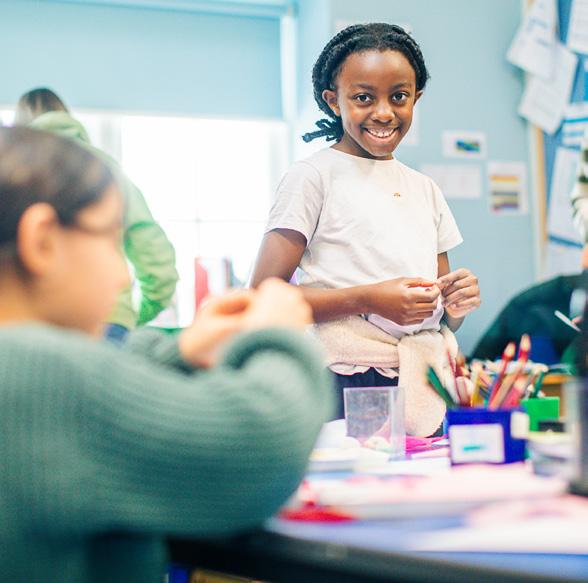
At St Chris, we recognise that every child begins their educational journey from their own starting point. Our focus is on deep, meaningful learning and engagement, not just academic results. We teach to the top of the class, setting ambitious goals for all students, and provide the support and challenge they need to reach their potential. Each child is encouraged to grow academically, socially, and personally, building confidence and developing their strengths.

Progress is monitored continuously through informal observations and an assessment sheet for each child. Teachers annotate skills as they are demonstrated, building a clear picture of each child’s development, highlighting strengths and areas to support. Half-termly meetings with the Junior School Head ensure tailored actions for stretch or additional scaffolding. Small class sizes and support from Teaching Assistants allow targeted group work when needed. While we follow the national curriculum, we have the flexibility to focus on areas that benefit each child’s learning. Academic reports are sent home twice a year, alongside termly parent consultations.
We use STEER Tracking (Years 3–12) to monitor and support students’ mental health and wellbeing. This evidence-based tool helps children develop self-regulation and identifies hidden social-emotional risks, allowing early intervention and personalised support.

In the Junior School, homework is designed to be meaningful, manageable, and linked to the term’s topic. Children receive a list of age-appropriate enrichment activities and typically choose three or four to complete. Activities may be creative, practical, or researchbased, and encourage family involvement. Standard weekly tasks include reading, spelling, and numeracy, with TimesTables Rockstars used across year groups. Deadlines are set for the end of each term, and teachers are available for support if needed.
We value student voice and leadership at every stage.
The School Council includes around ten students from Reception to Year 6, supported by the Pastoral Lead. It is nonhierarchical, giving all voices an opportunity to be heard.